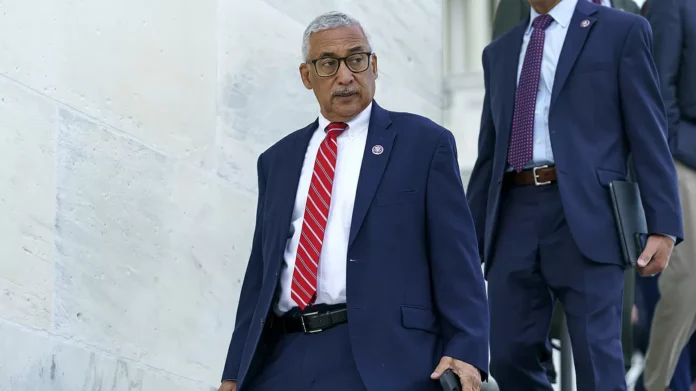On Tuesday, February 16th, Representative Bobby Scott (D-Va.) and Senator Bernie Sanders (I-Vt.) joined together to introduce the Raise the Wage Act of 2025 in both the House of Representatives and the Senate. The bill, if passed, would significantly increase the federal minimum wage to $17 by the year 2030. This move has been welcomed by workers and advocates across the country, as the current federal minimum wage of $7.25 has not been raised in over a decade.
The Raise the Wage Act of 2025 is a long overdue step towards addressing the growing income inequality in our country. According to the Economic Policy Institute, the proposed increase would benefit over 32 million workers, giving them a much-needed raise and helping them provide for themselves and their families. It is estimated that this wage increase would lift millions of people out of poverty and provide a much-needed boost to our economy.
In recent years, the cost of living has continued to rise while wages have remained stagnant. This has made it increasingly difficult for hard-working Americans to make ends meet. Many individuals are forced to work multiple jobs just to cover their basic expenses. This is not a sustainable or fair situation, and it is time for our elected officials to take action.
Rep. Scott and Sen. Sanders’ bill would gradually raise the minimum wage over the next five years, reaching $15 by 2025 and then increasing to $17 by 2030. This gradual approach allows businesses and employers to adjust to the increase and plan accordingly. It also ensures that workers are not suddenly hit with a drastic wage increase that could potentially have negative effects on the economy.
Some critics may argue that a $17 minimum wage would be too high and could result in job losses. However, numerous studies have shown that increasing the minimum wage does not lead to job losses. In fact, it can have the opposite effect by stimulating economic growth and creating more job opportunities. Additionally, a higher minimum wage would mean that workers have more money to spend, which would benefit businesses and support local economies.
Another important aspect of the Raise the Wage Act of 2025 is that it would eliminate the subminimum wage for tipped workers. Currently, tipped workers, such as restaurant servers, are only required to be paid $2.13 an hour, with the expectation that tips will make up the difference. This practice often leads to wage theft and puts tipped workers at the mercy of their customers. By eliminating the subminimum wage, we can ensure that all workers are paid a fair and livable wage.
While the Raise the Wage Act of 2025 is a major step in the right direction, it is important to note that $17 is still not a living wage in many parts of the country. Many workers will still struggle to make ends meet, especially in high-cost areas. This is why it is crucial that we continue to advocate for a living wage for all workers.
It is time for our elected officials to prioritize the well-being and livelihoods of hard-working Americans. By passing the Raise the Wage Act of 2025, we can take a significant step towards creating a more fair and just society. It is our responsibility to ensure that all workers are paid a wage that reflects their hard work and allows them to support themselves and their families.
In conclusion, the introduction of the Raise the Wage Act of 2025 by Rep. Bobby Scott and Sen. Bernie Sanders is a positive and necessary move towards addressing income inequality and providing a fair wage for all workers. This bill has the potential to positively impact the lives of millions of Americans and boost our economy. It is now up to our elected officials to support this bill and take action towards creating a more just and equitable society.

